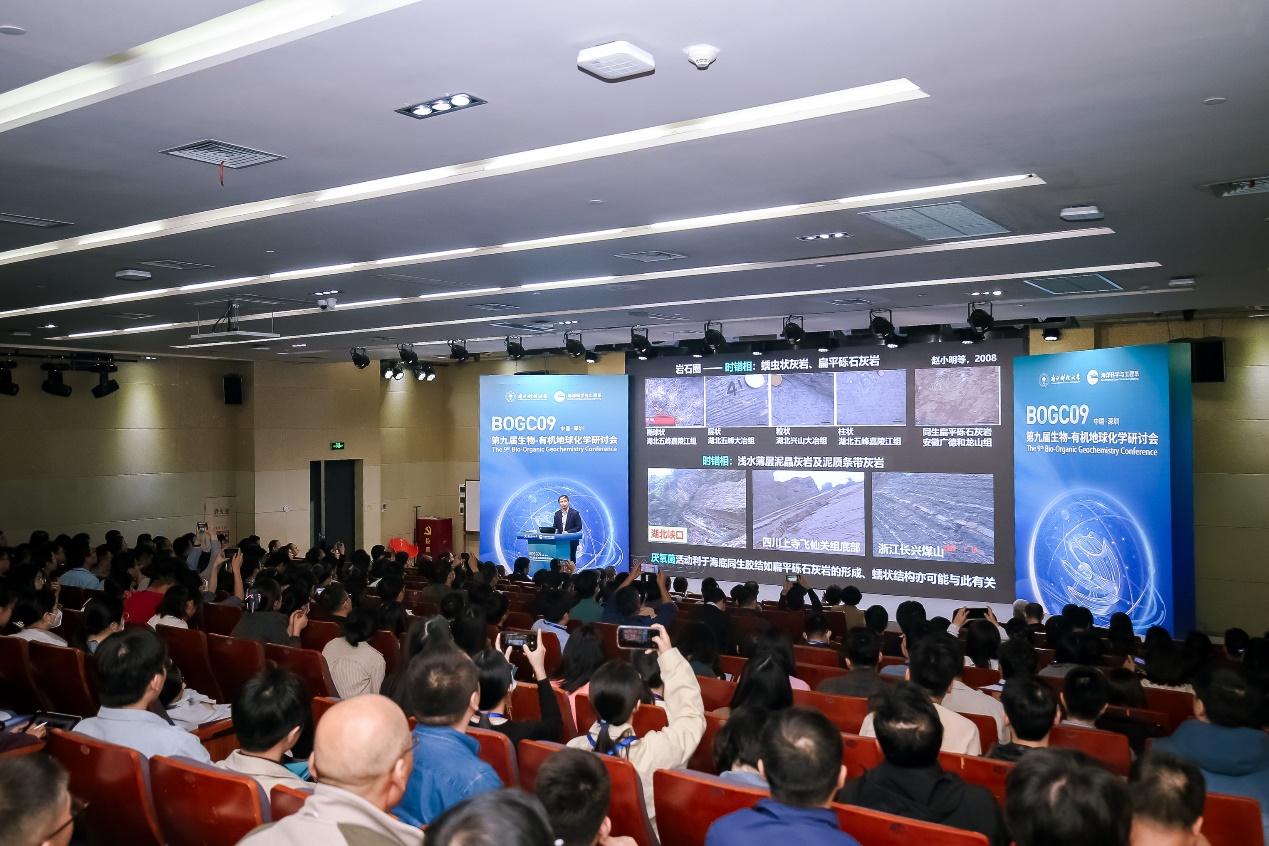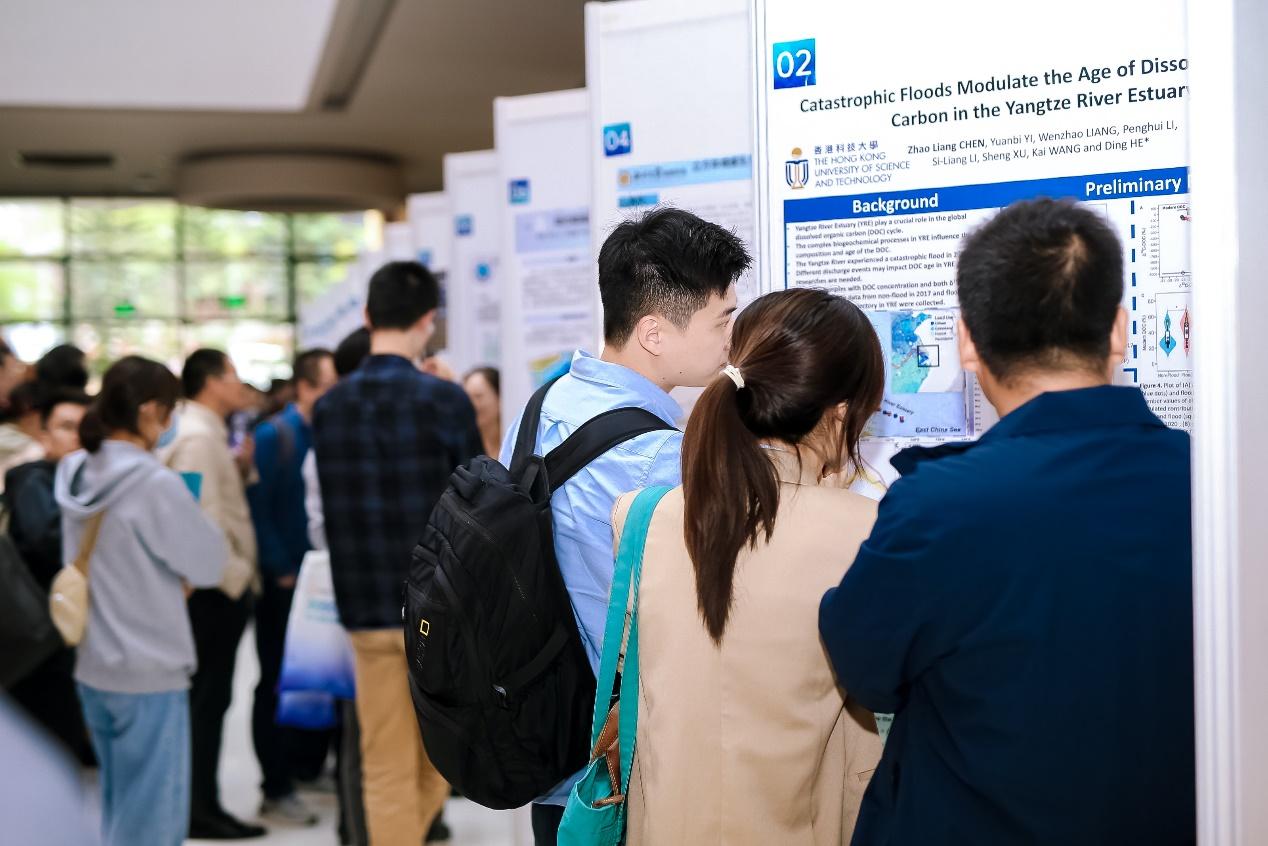From December 2 to 3, the 9th Bio-Organic Geochemistry Conference (BOGC09) was held at the Southern University of Science and Technology (SUSTech).
Established in 2012, the conference has evolved into a significant academic gathering within the field of bio-organic geochemistry in China.
It convened in Shenzhen for the first time, and was jointly organized by SUSTech and the Southern Marine Science and Engineering Guangdong Laboratory (Zhuhai).
It drew the participation of over 350 scientific researchers from more than 40 universities and research institutes domestically and internationally, fostering in-depth academic exchanges. The discussions centered on scientific matters such as bio-organic geochemistry in China, the deepening impacts of global climate change, and the national dual-carbon strategy.

The BOGC09 featured five key themes, namely Basic Organic Biogeochemistry, Lipid and Other Biomarker Geochemistry, Isotope Bio-Organic Geochemistry, Geomicrobiological Processes in Deep Time and Extreme Environments, and Modern Microbial Ecosystems and Biogeochemical Cycles.
Throughout the event, 12 esteemed international experts were invited to deliver reports, complemented by ten invited reports and 41 special reports across the aforementioned themes.
Furthermore, participants showcased their latest scientific research findings through posters, with five outstanding posters selected from the array of 90 on display, showcasing the vibrancy and diversity of this research field.
A notable highlight was the “Ocean Carbon Neutrality – National Plan-Greater Bay Area Power-Shenzhen Responsibility” event held on December 3. The on-site national science popularization activity on ocean carbon neutrality provided a platform for universities and scientific research institutions in Shenzhen to present their work on ocean negative emissions.
Simultaneously, a national signing ceremony was held for carbon neutrality and ocean negative emissions, urging public participation in ocean negative emissions efforts.

“Since the establishment of the Department of Ocean Science and Engineering (OSE) at SUSTech, we have assembled a team of high-level faculty members with a global perspective and has a first-class scientific research platform”, said Chuanlun ZHANG, Chair Professor of the Department of OSE.
He further remarked, “Serving as one of the organizers, SUSTech took the lead in hosting this conference, underscoring the discipline development in ocean science and engineering at the University, acknowledged by our international counterparts. The conference not only delved into the primary research domains of bio-organic geochemistry but also provided a solid platform for academic exchanges, poised to gain increasing prominence in the future.”
Expressing the significance of the conference, Ping’an PENG, Researcher at the Guangzhou Institute of Geochemistry, Chinese Academy of Sciences, emphasized its importance.
He highlighted that bio-organic geochemistry not only addresses key scientific issues surrounding the origin and evolution of life, metabolic mechanisms and ecological functions of microorganisms, and biogeochemical cycles of elements, but also correlates with global environmental shifts and the advancement of modern ecological civilization. It stands as a pivotal research field that holds significance for human health and development.
The hosting of BOGC09 not only furnishes a dynamic and open platform for academic exchanges, but also stimulates fresh perspectives to drive domestic research in bio-organic geochemistry. Additionally, it contributes to a deeper understanding of scientific issues pertaining to global climate change and the national “double carbon” goal.
Proofread ByYingying XIA
Photo ByDepartment of Ocean Science and Engineering